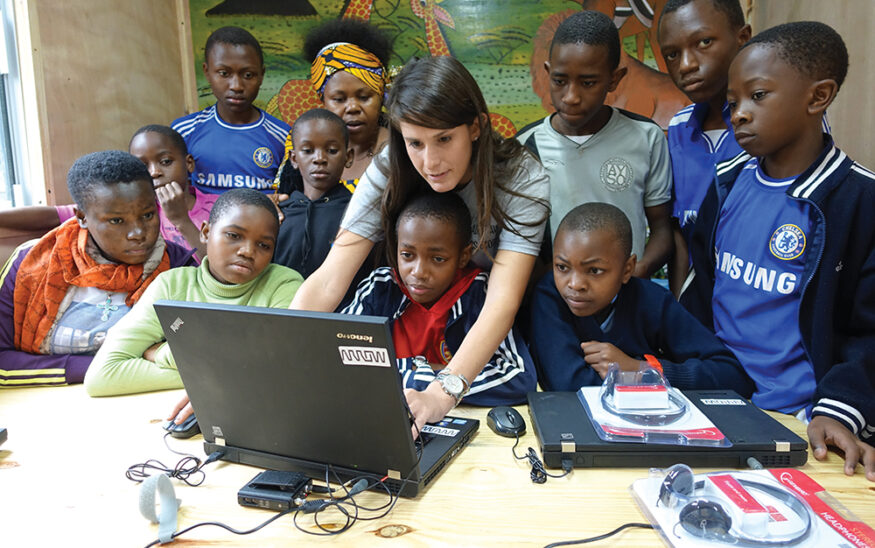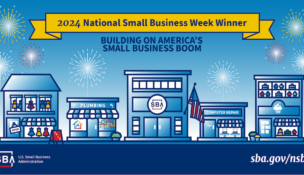The Nonprofits Behind the Profits
Giving back is going strong in Colorado
Julie Kailus //January 3, 2019//


The Nonprofits Behind the Profits
Giving back is going strong in Colorado
Julie Kailus //January 3, 2019//

Colorado is home to 20,000 charitable nonprofits representing 6 percent of the state's economy, according to the Colorado Nonprofit Association.
But there's one sector that's sometimes overlooked: the "nonprofits" behind the profits. Colorado companies approach giving differently, but businesses large and small know it matters. And they are increasingly looking at ways to apply the rewards they reap in a strong economy.
Corporate charitable arms can build stronger communities — and brands. But they can also attract young professionals who increasingly want to work for businesses that go beyond profit and loss.
Arrow Electronics is one such organization. Rather than running a traditional foundation out of the human resources department, Arrow’s philanthropy stems from brand and marketing.
To decide where the money should go, Arrow uses a brand pillar called Five Years Out — the idea that innovation comes from looking further into the future.
“Our projects reflect our values and bring to bear the skills and assets of the company,” says Joe Verrengia, Arrow Electronics’ global director of corporate social responsibility. “So this is not just Joe making a donation. It is bringing these technology projects to demonstration and sometimes to market for humanitarian good.”
 One Arrow initiative is a 3D-printed house aimed at solving shelter issues around the world. Locally the company is funding projects-based learning training for Cherry Creek Schools’ teachers. The education initiative will touch more than 50,000 kids in the next three years.
One Arrow initiative is a 3D-printed house aimed at solving shelter issues around the world. Locally the company is funding projects-based learning training for Cherry Creek Schools’ teachers. The education initiative will touch more than 50,000 kids in the next three years.
“We are teaching the habits you need to be an innovator,” Verrengia says. “STEM education is part of it, but it’s more about students learning the process of innovation. There is a skill set that can be taught.”
Ideally, those kids will one day come to work for Arrow.
At small companies like Jackson’s Honest, which started a line of coconut-oil-based potato chips, giving back is deeply engrained in the business. The Boulder family brand was founded as a practical food solution for their son’s rare autoimmune disease, which left him unable to process most foods.
It was a local success story. In fact, upon graduating high school, Jackson was planning to carry on his own legacy, running the Jackson’s Honest Foundation with his longtime coach and friend, Peter Kingsley.
Although Jackson died unexpectedly last year, the mission will go on, says Jackson’s mom, Megan Reamer, who is in the process of creating the foundation’s board.
“The reason and intention behind starting the business begins and ends with Jackson and his journey,” she says. “The ability to continue to move forward and build his legacy through this foundation has been a significant source of comfort for our whole family.”
Funded by outside donations and corporate dollars, the endowment will back research, education, and school- and home-based programs for children with rare inflammatory diseases like Jackson’s.
“Our goal is to support the kids and families whose daily courage, strength, and perseverance are inspirational,” Reamer says.
Even a business built on extracting has proven that giving can last longer than the resources. Through The Piton Foundation, Colorado oilman Sam Gary pioneered the idea that business and philanthropy can –– and should –– work together.
He has invested more than $220 million into the Denver community, mostly in the form of low-income housing.
“Over 40 years and through five economic recessions, the energy business made supporting Piton a priority, and it donated anywhere from 10 percent to 50 percent of its profits to the foundation each year,” says Dave Younggren, CEO of Gary Community Investments, the umbrella organization that continues to invest in for-profit and philanthropic solutions.
“Throughout his career, he [Gary] has applied private sector resources and technical expertise to social issues like poverty, unequal opportunity and urban decay,” Younggren says.
“He understands that companies can only be successful if they take responsibility for the employees, customers, neighbors and communities that allow them to thrive.”
Brownstein Hyatt Farber Schreck, one of Colorado’s largest law firms, builds giving right into the budget. “As opposed to a corporate foundation, we’ve chosen this model to allow for flexibility and agility in our philanthropic giving,” says Kristin Stork, director of community relations for the Denver-based practice, which celebrated its 50th anniversary this year.
In the last 20 years, Brownstein has invested more than $22.5 million in nonprofit organizations.
“Our focus is on engaging our people in the community,” Stork says. In keeping with that, 70 percent of attorneys and policy professionals serve on nonprofit boards; more than 400 people participated in volunteer projects last year; and the law practice provides over 10,000 hours of pro bono services annually.
Stork says the robust community program is a big differentiator. She says a majority of new hires cite it as a significant reason for joining Brownstein in the first place.
“Offering our employees the opportunity to engage with organizations and causes that are important to them develops deeper connections (and loyalty) between our employees and the firm.”

























